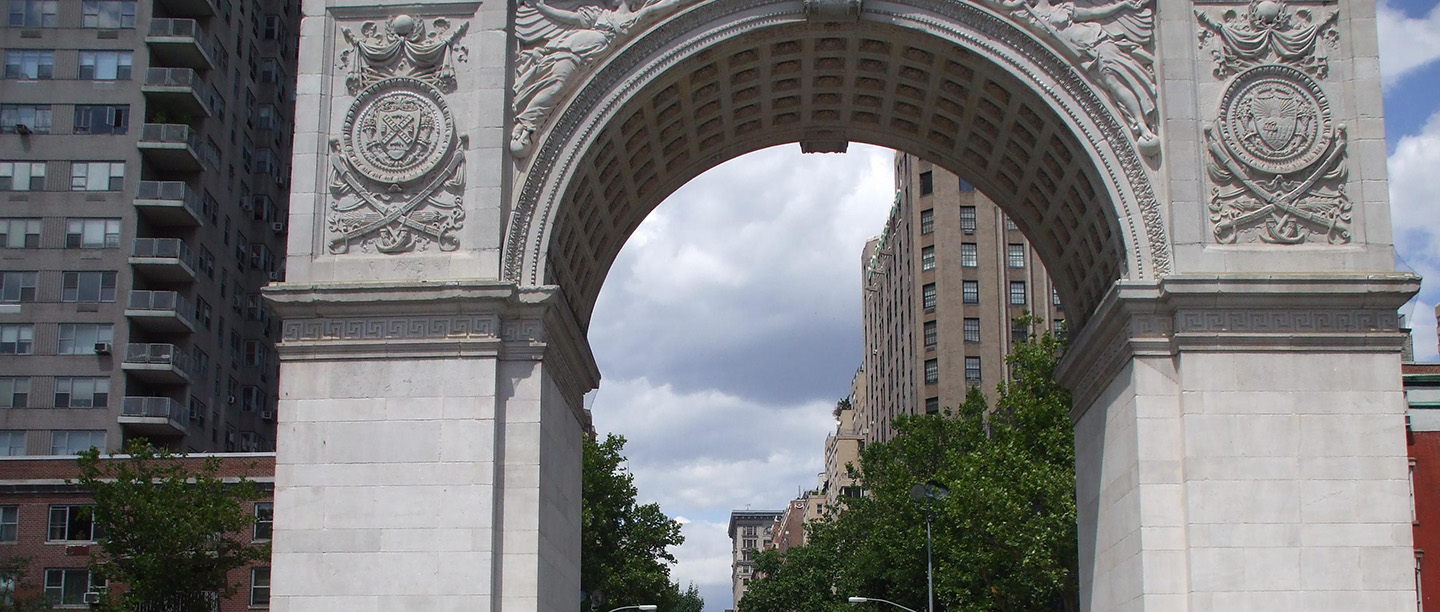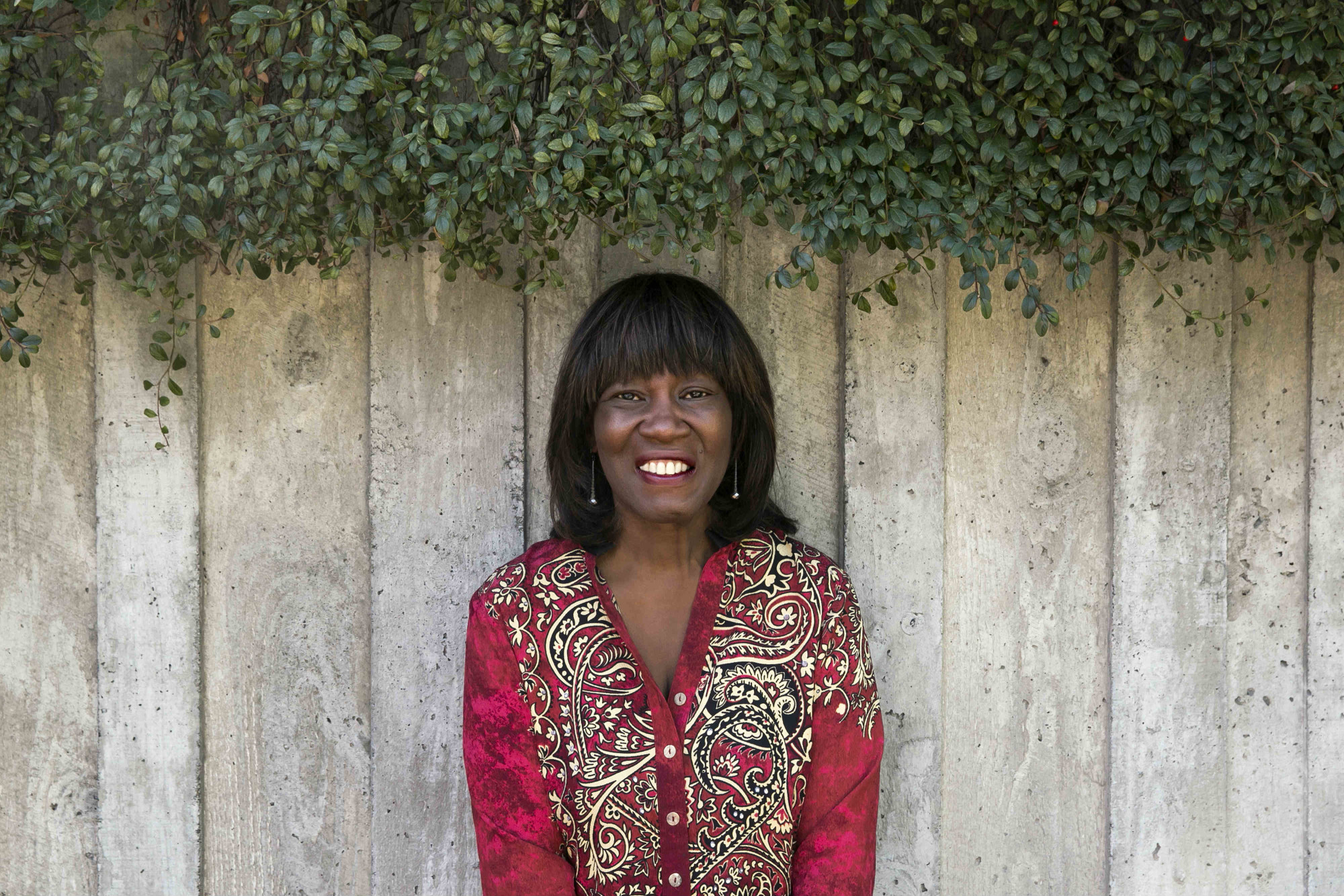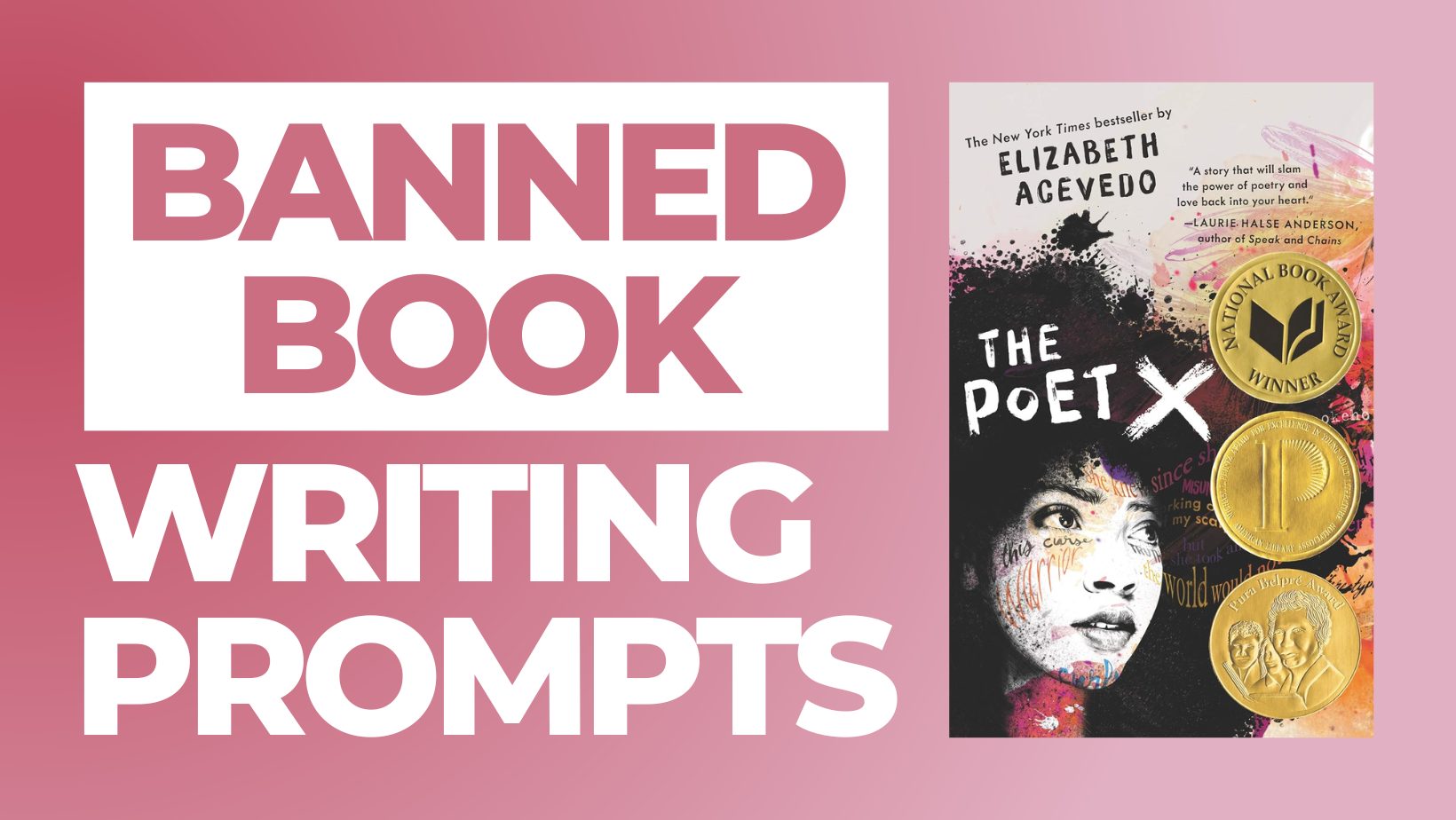Stepping onto a wooden box with a crumpled piece of paper in my hand, I was already laughing. We had gathered on that Sunday evening—the first Sunday of the month, as usual—under New York City’s Washington Square Arch to celebrate William Carlos Williams. I announced the poem’s title, “The Red Wheelbarrow,” and heard it echoed back to me from the crowd of friends and strangers gathered there at dusk.
“So much depends,” I began, pausing at the line break.
“So much depends,” they replied.
“upon,” I said.
“upon,” they said.
“a red wheel”
“a red wheel”
“barrow”
“barrow”
We were all laughing now, but I pressed on, giving each enjambment its own, big reveal.
“glazed with rain,” I announced.
“glazed with rain,” they announced.
“water,” I said.
“water,” they repeated.
Water! How remarkable that felt. To stand before strangers and say, “water.” And for them to reply, “water.” Suddenly we had gone from joking around to engaging in this mystical, elemental conversation—one which I had never known lived inside a poem I had encountered so many times. One tiny stanza remained:
“beside the white”
“beside the white”
“chickens.” I concluded.
“chickens!” They boomed back to me, with visible delight. For now we saw it, the glazed wheelbarrow tipped there before us, and we felt its mysterious importance.
The first meeting of The Poet Is In—a poetry outreach project headed by the then newly appointed New York State Poet Laureate, Marie Howe—took place on an early evening in August of 2013. Because Marie had assembled the group, and because our goal (loosely defined) was to integrate poetry into everyday spaces in New York, I assumed that everyone was a poet. When we began introducing ourselves across paper plates of hummus and rice crackers, I realized that, while many of us did write poetry, we were also a group of activists. A street artist with a philosophical message; the founder of The Trevor Project, a suicide hotline for LGBTQ teens; a couple who perform and publish Dadaist poetry; even the man who had hung the poem up in the hallway of the very building we were in, which I had read on my way up to Marie’s office.
This activist base, and the shared belief that we can create change, serves not only as our unifier, but also as the drive behind our primary project. The name we adopted that night is a demonstration of this very conviction. “The Poet Is In”—a title derived partially from Lucy’s psychiatry booth in “Peanuts” and Marina Ambromović’s “The Artist Is Present”—is a project that finds its life in its “in-ness.”
“The Poet Is In” also could be described as a series of poetry actions or “happenings.” They are about gathering people together in a space—ourselves and others, under arches and in train stations—to recite poems aloud. On the first Sunday of every month, we set a wooden box beneath Washington Square Arch, and for 25 minutes, we celebrate. Using the “human microphone”—a method of call and response used during the Occupy Wall Street movement to get messages across to large groups of people, when electric microphones were prohibited—we choose one poet a month to… reanimate? This sounds like a séance. And maybe it is. Not in the midnight teenage graveyard kind of way, but there is something to be said for the power of recitation. The act of reading a poem aloud can transform you into that poem’s vessel. You can invite the poem in and, in return, it may awaken in you something you didn’t know was there.
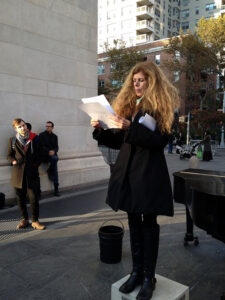
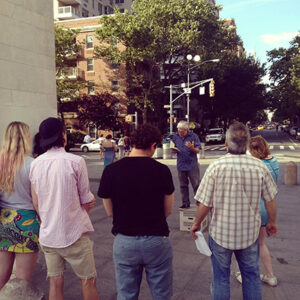
In one of my favorite performances, a young man who had dressed up as Sylvia Plath that day, for unrelated reasons—in a wig and lipstick, with balloons for breasts stuffed underneath his sweater dress combo—stepped up onto the box to read Lucille Clifton’s “wishes for sons.”
“i wish them cramps,” he said, and we all repeated.
“i wish them a strange town”
“i wish them a strange town”
“and the last tampon.”
“and the last tampon.”
“i wish them no 7-11.”
“i wish them no 7-11.”
And on through the poem like this, the words echoing back through the human microphone. It was breathtaking. Lucille Clifton came to life through this young man, and she came to life in all of us, in what we shared with him. At this point, a magical, inexplicable thing often happens, and suddenly there is another element introduced. The poet comes in. You can feel it there in the room with you, under the arch with you, in the bath with you, I suppose—were you to be performing call and response readings from the bath.
Poetry lends itself so generously to this human microphone, as each break gets amplified and considered in the exchange. Shall we get grandiose about this? In the historic quest to define Poetry, perhaps “The Poet Is In” is taking a stab: positing that poetry may be the thing that lives between the lines. This feels especially true when a poem is read aloud, giving each breath, each pause, its own gravity. Sometimes in these readings, new spaces have to be integrated into the text—as felt and chosen by the reader—in order to allow the crowd to echo the entire piece back. The Poet is, first and foremost, here, a felt presence in space.
Another one of our “poetry actions” involves a live poet, sitting behind a typewriter, writing a poem just for you. This action—also titled “The Poet Is In”—was one of the most successful parts of a big, weekend-long event we did back in April 2014 in Grand Central Terminal’s Vanderbilt Hall. We put this particular event together in association with the Poetry Society of America and the New York City transportation authority’s Poetry in Motion project, to celebrate National Poetry Month. It was like a fair, the grounds of which opened up verse to the curious, with the longest line stretching out from the biggest attraction, where poets including Tina Chang, Bob Holman, and Marie Howe sat behind typewriters and invited you to sit at the desk across from them, to receive a poem written specifically for you.
Many people, like a fabulous man in a silver chain necklace named Eugenio, were repeat offenders; they received their poem and then returned to the back of the line to experience it again with a new poet. A number of people were visibly shook up by the experience. My brother, Dan, for instance, was one of the last people to receive a poem, as we began to shut down our attractions that Sunday. I watched out of the corner of my eye as Catherine Barnett finished typing her poem. After she read it aloud for him, he rose and came up to me, the paper held gently in his hand. “I need to go have a cigarette,” he said. I read the title: “Open Space for Dan.” Poetry can be a very particular type of gift.
“The Poet Is In” is about communing with one another in a way that has become increasingly rare. Because, regardless of the degree to which we may each resist it, we communicate so much through technology, with a screen separating us from whomever we are talking to. That is why it is so vital to find places where we can be present with one another. When you are reading, there is only the poem in your hand/head, the box beneath your feet, and the people around you. When you are responding, there are only the words: spoken to you, coming into you, being given back by you. You can hear each other. The poem inhabits the space and envelops the crowd; it sounds itself and there you are, “in.”
As Marie puts it, our event under the arch is “exhilarating and brief.” Join us! Come read, lurk in the back, join the human microphone for 25 resonant minutes, or start “The Poet Is In” in your own town, perhaps under your own arch, or on the top level of a parking garage, or in the center of a mysteriously populated field, if Nebraska is anything like I think it is. Whatever you choose, your presence will only contribute to the heart of this action: one that sees poetry come to life—in the spaces we too often forget are so brimming with it.
If you want to receive updates telling you for which poet and during what time we will be congregating under Washington Square Arch that month, write to thepoetisin@gmail.com.
Chessy Normile is a poet and playwright living in Brooklyn, New York.

